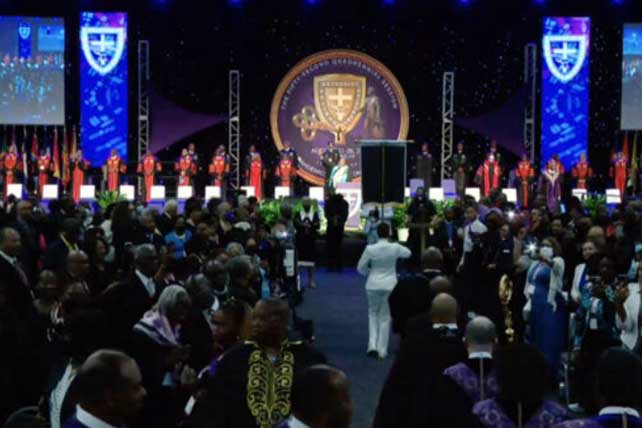Earl Harris said his and his wife’s ownership of charter schools has helped them financially in his post-pastoral retirement. He said he was struck by the dozens of lawyers appearing in court on behalf of the suits’ many parties.
Some AME ministers said communication from the church has been confusing or lacking as they await the outcome of the court proceedings. Some participants in the retirement plan, often referred to as the “legacy plan,” received letters in January and March that seemed to contradict each other in describing available retirement funds, and the latter letter included an apology “for any confusion.”
Asked about the letters, Lee, the plan participants’ lawyer, said their balances should be determined by the court.
“Many were confused,” he said. “We were too. We supported the (March) retraction and understand that it renders the first letter void.”
The Rev. J. Edgar Boyd, 77, a leader of the “AMEs for Justice and Accountability” group, said he’s heard from retired clergy whose economic situations have been “imperiled tremendously” in the wake of the retirement fund losses.
“Many retirees — retired pastors that I have actually spoken to or have spoken with others about — some of them have had to go and live with their own children,” said Boyd, former senior pastor for the First AME Church of Los Angeles. “Some of them have lost their property because they couldn’t make the payments, the mortgage payment on it, or had to sell it for a smaller amount.”
Earl Harris, who joined Boyd at one of the court hearings, said he is concerned about those who have not had the funds or additional income to rely on in their retirement years.
“They’re looking for jobs,” he said. “Their children are supporting them. Several of them have filed for bankruptcy. It’s really been rough for a number of them.”
This article originally appeared here.


